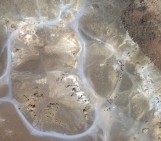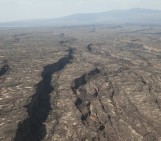In the UK, the landscape of graduate doctoral training (for the PhD, or DPhil degree) in the field of environmental research is about to be radically reshaped. The main funding agency for PhD training, the Natural Environment Research Council, is currently running a competition for Universities and other Research Organisations to run coordinated doctoral training programmes from next year (October 2014), built around the idea of training future environmental scientists in cohorts within a multidisciplinary environment. This differs from current practice in the UK, where funding for doctoral training from NERC is allocated to individual departments on an annual basis, based on an algorithm that takes into account elements such as grant income.
The move to a programme of Doctoral Training Partnerships, where partnerships will be between both academic and research ‘producers’ and non-academic ‘users’ of NERC-funded science and scientists, offers an opportunity to embed some completely new aspects of training into PhD and DPhil programmes.
Looking back on your own graduate training, what do you wish that you had learned about, been exposed to, or been encouraged to think about while in Graduate School, rather than having to catch up later? Here are a few examples of my own [thinking back to a PhD many years ago], just to get started..
1. How to write: for journals, for the media, for the public.
2. How to work collaboratively.
3. How to write a fundable research proposal, and how to manage the research, researchers and other aspects once funded.
4. How scientific research translates into the ‘real world’: who uses it, why and how.



elliehighwood
Timescales. How long it takes to get a paper published or get a proposal written, reviwed and funded, how long it takes to prepare a lecture from scratch.
davidmpyle
Great point! Thanks
John Stevenson (@volcan01010)
I wish that I had learned about programming. Maybe Matlab or R. Nowadays I would choose Python. Excel has its limits and having a bit of simple programming in your toolbox changes the way that you think about data. Suddenly making beautiful plots of multiple data files becomes a single command instead of a nightmare of macros, cutting and pasting. In geoscience, it is a vital skill if you want to include modelling, remote sensing or seismic data in your work.
After too many late night battles with MS Word, I also wished that I had learned LaTeX.
davidmpyle
Thanks – a very good point!